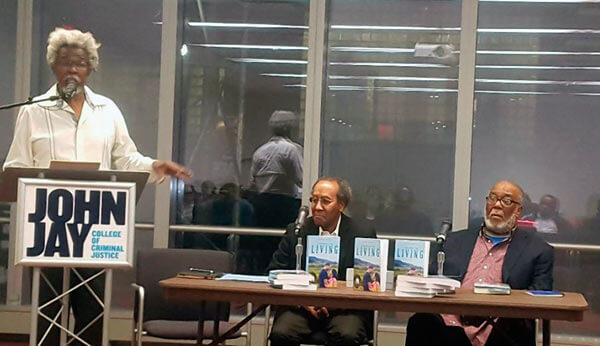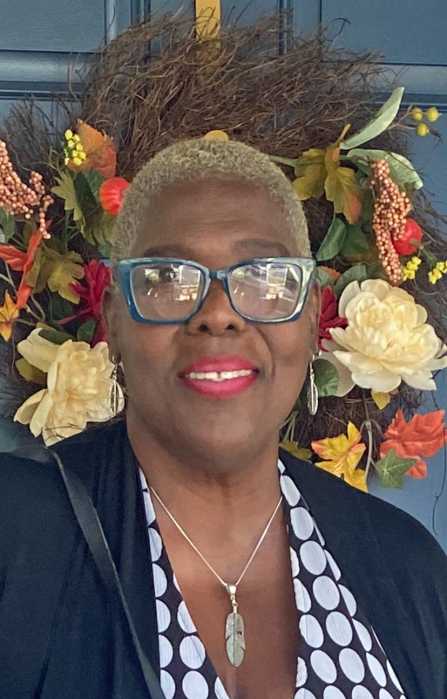Julian Jingles was a teenager living in Kingston, Jamaica during the 1960s when he started writing a book he eventually titled “A Reason For Living.”
Drawing from eye-witness incidents he experienced living in the hub of the Caribbean’s most progressive nation, the ambitious youth documented his island’s social, political and economic frailties and masked his observations by penning a fictitious novel which spotlights the Rastafarian movement, the Black power and Civil Rights movements in the USA and corruption on the tiny island.
Instead of publishing a blow-by-blow account of his observations, he took pause after leaving high school and prolonged his interpretations for decades and only recently shared the details with a community that may or may not relate to his experiences.
Fifty years after his initial attempt, Jingles has finally completed the book and recently introduced the characters that lingered half a century before becoming a 382-page read.
In the presence of a predominant Jamaican audience, C. Jama Adams, former chairman and professor in the Africana Studies Department at John Jay College of Criminal Justice and Dr. Basil Wilson, retired provost and senior vice president of academic affairs at the same institution, the patient writer explained why his belated attempt has arrived in the 21st century.
Adams hosted the launch and Wilson keynoted the event.
Although “80 to 85 percent of the book was written 50 to 52 years ago” the topics revealed “remains relevant to what is being experienced in Jamaica today,” Jingles said.
Referencing a line from William Shakespeare’s “The Tempest” he justified his half-century span saying, “what’s past is prologue.”
“He cited the ’60s as a period of great creativity but equally volatile, with some 15 gangs operating in Kingston, naming Mau Mau, Phantom, Spoilers and Untouchables.”
And with a vantage point he said he was privileged to observe living in the capital city where “my father was a port worker and my mother a factory worker” Jingles said regardless of a time-lapse, he felt compelled to tell this engaging perspective.
Integrating the influence of music and economics as factors impacting the island’s evolution he highlighted how “the emergence of ska, rocksteady, reggae and dancehall music captured international attention.”
Citing Robert Nesta Marley, Buju Banton as cultural contributors who positively affected global appreciation of the island’s music, he contrasted negative enhancers, naming Vybz Kartel and Ninjaman as “degradators of the culture.”
He said the deejays “lionized violence” and undoubtedly enhanced images of “rude boys projecting violence.”
Set in Jamaica in the 1960s, the novel is described by Wilson as a “significant achievement by the author, who began writing it in 1966, as a teenager just leaving high school in Jamaica.”
Wilson like Jingles, are alumnus of Kingston College, a reputed learning institute of championing excellence in boys.
“The book has many compelling scenes and some very touching, sensitive dialogs,” Wilson said.
The educator described the work to be “riveting, long, but never boring, touching on micro and macro relationships of love, sex and politics, and the search of Jamaicans for the essence of their existence, battling social injustices, economic deprivation and inequities, and the role of culture in all of this.”
His descriptive assessment prompted the immigrant audience to consider the role that education and migration may have played in advancing or retarding the country’s development.
“Why didn’t Jamaica have a revolution?” a patron asked.
With that query, a lively discussion ensued with philosophic reasoning as to why despite numerous unrest and turmoil a revolt never manifested.
The novel actually explores the disruptive power play and the two intellectuals detailed why in reality a revolution might have had a positive or negative effect on the nation’s outcome.
Adams who migrated from the island at a young age explained his perspective by retracing the trend that preceded the 1962 independence when Jamaicans left their homes to live in United Kingdom in the 1950s and ‘60s. At that time, under colonial rule, commonwealth citizens were able to migrate without need of an entry visa.
When that opportunity ceased, America seemed the next best option for nationals seeking an alternative lifestyle or perhaps well-being.
Wilson offered numerous reasons why citizens did not consider replacing or repudiating the political system.
The launch at the very least proved that the author, filmmaker, entrepreneur did not wile away five decades as a bystander but may have calculatedly used the hiatus to toil in order to reveal a compelling novel about the creative and volatile ‘60s in Jamaica.
During his state of delay Jingles reported for the Jamaica Gleaner, the leading newspaper on the island. He also contributed items to the New York Amsterdam News, the premiere Black, weekly here and the Daily Challenge, at the time, New York’s only daily, Black newspaper.
He is also credited with producing music, concerts, staging plays and made three documentaries.
The book is available at Barnes & Nobles, Amazon and iUniv
Catch You On the Inside!


























